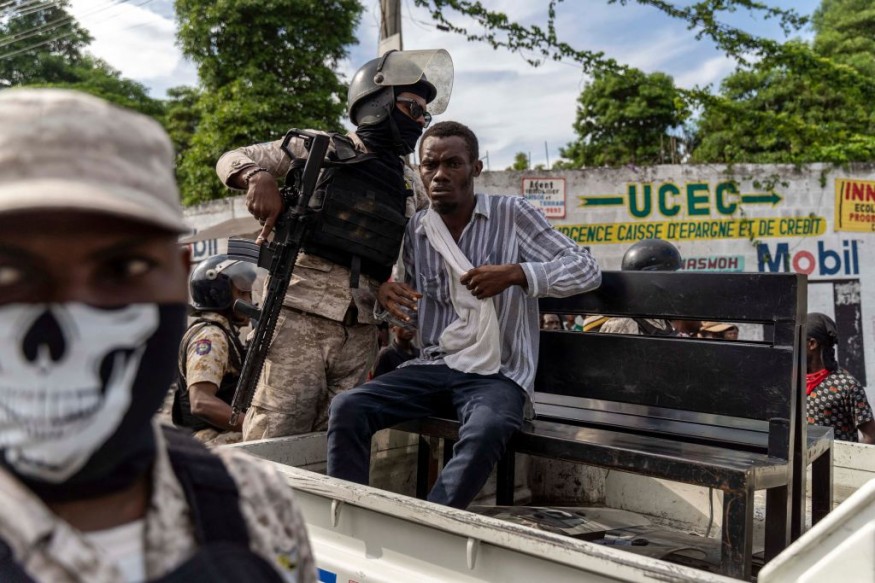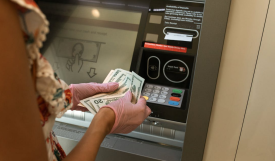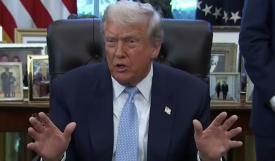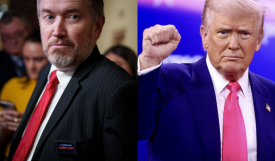Haiti: U.S. Government Officially Charges Haitian Gang Leaders for Kidnappings, Offers Rewards

The U.S. government has officially charged Haitian gang leaders for the kidnapping of 16 U.S. Christian missionaries in Haiti in October.
The U.S. Department of Justice filed the charges against the Haitian gang leaders while offering a reward of up to $1 million each, according to a U.S. State Department's press release.
The Haitian gang leaders named were Lanmò Sanjou, known as Joseph Wilson; Jermaine Stephenson, known as Gaspiyay; and Vitel'Homme Innocent. They were charged with conspiring to participate in or attempting to participate in transnational organized crime.
The State Department continued to say that the United States supports Haitian law enforcement when it comes to imposing the rule of law in Haiti and fighting transnational organized crime.
Meanwhile, the Federal Bureau of Investigation released three flyers showing pictures of Sanjou, Stephenson, and Innocent.
Haitian Gang Leaders
U.S. officials have also identified a group of seven men who are accused of leading the main gangs in Haiti such as the 400 Mawozo, Kraze Barye, Gran Ravine, Village de Dieu, and Kokorat san Ras.
Sanjou and Stephenson are both leaders of the 400 Mawozo while Innocent is the leader of the Kraze Barye gang, according to federal agents.
Aside from the Haitian gang leaders, FBI special agents are also looking for Renel Destina, who is also known as Ti Lapli. The 40-year-old is known to be the leader of the Gran Ravine gang.
"Manno" or Emmanuel Solomon is also being hunted by U.S. officials. He is the leader of the Village de Dieu gang.
Lastly, the leader of the gang Kokorat san Ras was identified as Jean Dolcin. U.S. federal agents are also looking for the Kokorat san Ras leader.
Haitian law authorities arrested another leader of the Kokorat gang. He was identified as John Peter Fleronvil.
Haitian law enforcement officials arrested him on September 11 while he was trying to cross to the Dominican Republic.
Kidnappings and Violence in Haiti
Gangs are fighting each other and seizing territory in Haiti's capital, Port-au-Prince, with the violence erupting after the assassination of Haiti's President Jovenel Moise.
Haitian gangs have been enforcing power and control over their marked territories on levels not seen before, according to experts.
Gangs have also managed to close schools, businesses, and hospitals as they raid new neighborhoods and seize control of the main roads, as reported by Associated Press News.
Meanwhile, more children are being recruited into gangs. Gang members were arming children with heavy weapons and creating temporary alliances with other gangs in an effort to take over more territory for economic and political gain.
Among the atrocities committed in Haiti by criminal organizations were gang-raping children as young as 10 and setting fire to at least a dozen homes.
U.N. High Commissioner for Human Rights Michelle Bachelet noted in a statement on May 17 that armed violence "has reached unimaginable and intolerable levels in Haiti."
Haitian Prime Minister Ariel Henry has remained mum on the growing violence in his country while the new police chief of Haiti, Frantz Elbe, said that dozens of gang members were arrested with another 94 killed since he took over six months ago.
Elbe added that around 5,000 suspects have been accused of crimes.
This article is owned by Latin Post.
Written by: Mary Webber
WATCH: Haiti asks for international support as criminal gangs there grow stronger - from PBS NewsHour
Subscribe to Latin Post!
Sign up for our free newsletter for the Latest coverage!
© 2025 Latin Post. All rights reserved. Do not reproduce without permission.















